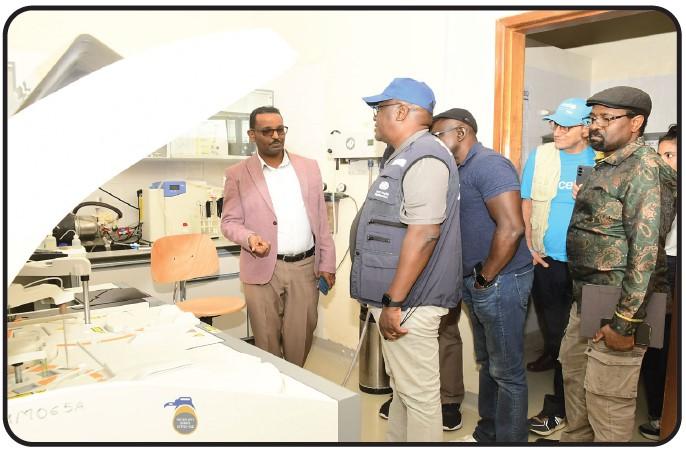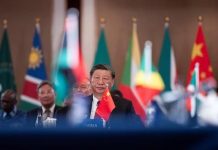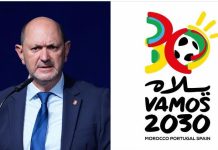Africa-Press – Eritrea. A delegation of UN representatives in Eritrea and other regional and non-resident officials have recently been on a tour of key development sites in the Southern region. The purpose of the visit was to explore opportunities for collaboration and to enhance communication. Following are impressions of some delegates that went on the tour.
Ms. Nahla Valji, United Nations resident coordinator in Eritrea: Every year the UN country team in Eritrea has a meeting for us to come together and plan for the year ahead. In previous years that meeting took place outside of Eritrea, and this year we’ve been incredibly privileged to have the opportunity to arrange the meeting here, in Asmara. This allowed us to welcome senior colleagues from the region and non-resident specialists who cover Eritrea, fostering a more direct and in-depth engagement. This provided an incredible opportunity to engage directly with the government at the highest level, allowing us to understand their priorities and strategize how we can work with them behind these priorities. It also meant we could bring colleagues from outside Eritrea to visit our partnership sites, giving them a firsthand look at the amazing innovations and vital work happening here on the ground.
In our journey we had a delightful lunch at the Azeb Dairy Farm, where we savored some of the best cheese I’ve ever tasted. We also had the crucial opportunity to visit communities and witness firsthand their remarkable efforts in water conservation terracing, which are vital initiatives for ensuring food security. Another incredibly impactful stop was the Mendefera Hospital, boasting not only amazing facilities but also truly skilled, dedicated, and committed medical team. This entire experience has been a truly wonderful opportunity to bring the UN team and our partners together, allowing us to witness just how much progress is happening in Eritrea, particularly in the realm of development.
Mr. Mathias Zana Naab, Director of UNDP regional service center: First and foremost, I must say that before I came to Eritrea, I knew nothing about this beautiful country. And the little that I had heard about it was always a negative story. I arrived here on Monday—just three days ago— and I was pleasantly impressed. I’m delighted that I made the decision to join and support UNDP operations here, and also to participate in the UN country team meeting. Let me extend my sincere appreciation to the government of Eritrea for their hospitality. I’ve had the opportunity to meet some government officials, and I was truly impressed with their commitment and clear understanding of their purpose.
And that purpose was not only inspirational to me as a development worker but also inspirational for me as an African. I’m from Ghana, but I was very much inspired by the stories of resilience of the government. And secondly, by the determination with which, over the years, the government has been able to drive development and uphold a principle of development that has truly generated and provided for its citizens. I must say, for us at UNDP, we’re looking forward to continuing our support to the government, especially now as it’s in the process of developing the national development plans. The UN, together with all agencies present here and those outside of Eritrea, is truly dedicated to being able to tell the good stories of Eritrea.
Dr. Nonso Epraim, WHO representative to Eritrea: As we know, the WHO is a UN agency with a mandate on health. This visit was very revealing; I wonder why we haven’t seen this for ourselves. We couldn’t imagine such services in Mendefera. At the hospital we visited, we saw state-of-the-art facilities, from functional digital X-ray machines to even AI-powered X-ray machines. Of course, Asmara is the center, but strengthening and equipping hospitals around the peripheries with advanced facilities like this aligns with the Eritrean mandate of leaving no one behind. It’s about making sure that what is available in the center also reaches the hard-to-reach, making it very accessible to every Eritrean.
And I think the prospects are very bright. Where there’s public ownership, government commitment, and the government at the driving seat of the development track, partners like us are also on the ground to collaborate with the government, understand their priorities, and see how we can complement government effort in achieving development initiatives. The government is clear and consistent, but we can’t do everything alone. That’s why anybody who is a friend of Eritrea needs to understand where you can make your own contribution in terms of supporting the good work the government does in Eritrea. For example, in Eritrea, health facilities give service free of charge, which is done against a background of limited resources. This isn’t something you see a lot in many countries, even the so-called developed countries. I think this is commendable; these are the things our practical visit is revealing. This visit is revealing the testament of what the government is doing, and I am proud to be associated with it.
Tally Einav, Head of UNIDO (The United Nations Industrial Development Organization) in Kenya: We are a non-resident organization but the government has asked us to come here to work with them on our core mandate, which is industry. Anything that is value addition is part of what UNIDO is doing. Because it creates jobs it creates income and helps with food security, making sure we don’t waste food. For me today is very special because it’s my first time outside Asmara. It was incredible to see with my own eyes the work that is actually done in the country by the people of the country. The great dam (Misilam dam) that is built by Eritreans is part of our scope because water source is a foundational element for every industry. To see this much water infrastructure built here out of nowhere is very impressive. We also visited the cheese factory, which is a value addition. This, too, is part of our agency’s concern. The dairy farm we observed on our trip is creating job opportunities for so many people. And the community that we saw working together on soil and water conservation was quite remarkable. My main conclusion is that there is a lot going on here on the ground. So UNIDO will collaborate with the government to identify areas where expertise is required and to determine how we can assist the government through technology. The good news is that the majority of the foundations have already been laid, so we won’t have to start from scratch.
Ms. Nahla Valji: The key takeaways from this trip are centered on the vital insights gained from direct engagement with the government, specifically concerning their priorities in health, education, and food security. This firsthand understanding has highlighted the immense potential for partnerships to support the significant development initiatives already underway in Eritrea.
Mr. Mathias: For me, the takeaways are three. First, the UN has a lot to offer to support the government’s vision. This is also because I was impressed by the government’s appreciation of the UN. So, the deepening of the partnership between the UN and the government, and the strong relationship that currently exists, is one takeaway. The second is something related to the vision of the country. The country really has a vision which has a sense of purpose. In addition to that, I believe the narration of the country must change. The narrative must change to tell the real, positive story of this country. This is why, going back, I’ll be an ambassador of Eritrea to tell what good resides here in terms of the people and in terms of the government’s vision to ensure that development reaches everybody. The third one is personal: that everything is possible when you believe in your purpose. I think this has been the spirit of Eritrea all over these years. They believed and were consistent on what they have believed and their purpose, and this is my personal takeaway.
For More News And Analysis About Eritrea Follow Africa-Press







